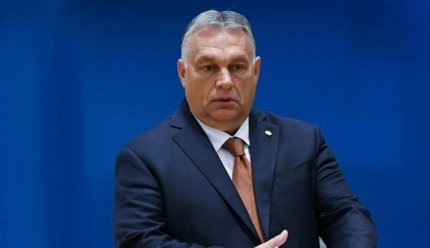Hungarian Prime Minister Viktor Orbán is creating an opposition of far-right European politicians in the European Parliament, around his own Fidesz party.
Points of attention
- Viktor Orbán is forming a far-right opposition group called 'Patriots of Europe' in the European Parliament to maintain influence and expand his policies.
- The emergence of the 'Patriots' group undermines efforts to isolate Orbán and may potentially change the political landscape in the European Parliament.
- Orbán's new opposition force could threaten EU cohesion, impacting key aspects such as the budget, enlargement, and foreign policy, specifically towards Ukraine.
- While currently limited in influence, the 'Patriots' group may gain more seats over time, potentially challenging the pro-European centrists' majority in the parliament.
- Journalists predict that the growth of Orbán's opposition could lead to significant shifts in the political balance of forces in the European Parliament, posing challenges for EU policymaking and international relations.
What is known about Orbán's opposition to attempts to isolate him in the EU
The publication notes that the Hungarian Prime Minister's creation of an opposition force in the European Parliament, centered around his Fidesz party, undermines the efforts of other European politicians to isolate Orbán due to his scandalous actions and pro-Russian policy.
In particular, the new political force created by Orbán, which received the name "Patriots of Europe", has already become the third largest bloc in the European Parliament.
The success of Orbán's initiative is an outstanding achievement... The creation of the "Patriots" group demonstrates that Orbán is much less isolated than initially assumed and is capable of creating a coalition of like-minded people who share his strategic goal of creating a "Europe of nation states," the publication says.

It is emphasized that in the near future this political force will not be able to change the balance of power in the European Parliament or exert a significant influence on EU policy, as pro-European centrists retain a significant majority in Brussels.
Thus, the "Patriots" will remain in the opposition with limited opportunities to influence the EU legislative process. The size of the group will provide it with more funding, visibility and popularity in parliamentary sessions, but it will be denied any significant representation in the governing bodies of the parliament - such as committee chairs - the authors of the material explain.
How does the growing influence of Orban's new opposition force threaten EU policy?
However, journalists predict that in the future changes in the political balance of forces in the European Parliament will undergo changes and turn out to be serious.
Currently, the opposition force created by Orbán controls only one seat in the Council, and has indirect influence on two more seats, the Netherlands and Italy.
However, the number of representatives of the "Patriots" group in the Eurocouncil is likely to increase over time, as elections are expected to be held in Austria and the Czech Republic in the fall, where far-right parties may also come to power.
This development risks undermining EU cohesion in key areas, primarily in the EU budget, enlargement and foreign policy - especially when it comes to Ukraine. Through a mixture of persuasion and financial arm-twisting, the EU has so far found ways to circumvent Orbán's repeated vetoes on Ukraine. But it will be much more difficult to restrain a larger and more determined group, - warn the authors of the material.




